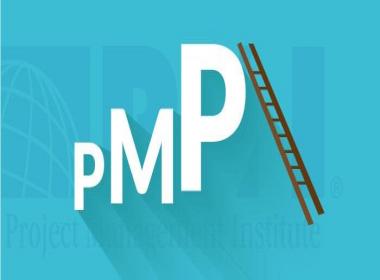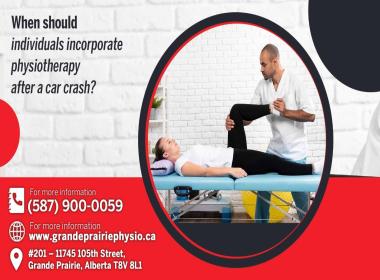
Sports physiotherapy, alternatively referred to as sports physical therapy, is a specialized field within physiotherapy dedicated to addressing injuries and conditions associated with sports and physical activity. Sports physiotherapists collaborate with athletes of varying ages and skill levels, ranging from recreational participants to elite competitors. Their primary objectives include enhancing performance, minimizing injury risk, and supporting a safe return to sport following injury through prevention, assessment, treatment, and rehabilitation.
Overview of Sports Physiotherapy:
Sports injury physiotherapy is an integral component of sports medicine, providing specialized care to athletes of all levels to prevent injuries, manage conditions, optimize performance, and facilitate safe return to sport. Through comprehensive assessment, evidence-based treatment, and tailored rehabilitation programs, sports physiotherapists help athletes achieve their goals and maintain long-term health and well-being in their athletic pursuits. Here's an overview of sports physiotherapy:
Injury Prevention:
Sports physiotherapists work with athletes to identify and address potential risk factors for injuries. This may involve assessing biomechanics, strength and flexibility, sport-specific movements, and implementing injury prevention strategies such as strengthening exercises, proprioceptive training, and proper warm-up and cool-down techniques.
Assessment and Diagnosis:
When injuries occur, sports physiotherapists conduct thorough assessments to diagnose the nature and extent of the injury. This may involve evaluating a range of motion, muscle strength, joint stability, functional movement patterns, and specialized tests as needed to determine the course of treatment.
Treatment:
Treatment modalities in sports physiotherapy may include manual therapy approaches such as joint mobilization, soft tissue mobilization, and manipulation to restore normal movement and function. Additionally, therapeutic exercises are prescribed to improve strength, flexibility, balance, and proprioception. Other interventions, such as taping and bracing, as well as modalities like ultrasound, electrical stimulation, and cryotherapy, may also be utilized to aid in the healing process.
Rehabilitation:
Rehabilitation in sports physiotherapy involves guiding athletes through progressive exercise programs aimed at restoring function, improving performance, and facilitating a safe return to sport. This may include sport-specific drills, agility training, plyometrics, and functional exercises tailored to the demands of the athlete's sport and level of competition.
Return to Sport Planning:
Sports physiotherapists play a crucial role in developing and implementing return-to-sport protocols for athletes recovering from injuries. This involves monitoring progress, assessing readiness to return to play, and implementing strategies to minimize the risk of re-injury.
Performance Enhancement:
Beyond injury management, sports physiotherapy in Sherwood Park also focuses on optimizing athletic performance. Physiotherapists work with athletes to address biomechanical inefficiencies, improve movement patterns, and enhance strength, power, and endurance to maximize athletic potential.
Education and Counseling:
Sports physiotherapists provide education and guidance on injury prevention, proper training techniques, equipment selection, and lifestyle factors that may impact performance and recovery. They also offer advice on nutrition, hydration, rest, and recovery strategies to support overall athletic development.
Benefits of Prioritizing Athletic Well-being
Opting for athletic well-being offers numerous benefits that contribute to overall health, performance, and quality of life. Here are some reasons why individuals may choose to prioritize athletic well-being:
Improved Physical Health:
Participating in regular physical activity, which includes engaging in sports and exercise, has several benefits. It enhances cardiovascular health, strengthens muscles and bones, improves flexibility and coordination, and assists in maintaining a healthy weight. Being active in athletic pursuits can also lower the risk of increasing chronic conditions like heart disease, diabetes, obesity, and specific forms of cancer.
Enhanced Mental Health:
Physical activity has been demonstrated to positively affect mental well-being by alleviating stress, anxiety, and depression. Exercise has been proven to release endorphins, neurotransmitters associated with feelings of happiness and well-being, thus enhancing mood, self-esteem, and cognitive function.
Better Sleep:
Consistent exercise and physical activity have been linked to enhanced sleep quality and duration, resulting in more rejuvenating and restorative rest. Sufficient sleep is crucial for physical recovery, cognitive performance, and overall well-being.
Increased Energy and Vitality:
Engaging in consistent physical activity can boost energy levels, improve stamina, and enhance overall vitality. Athletes often report feeling more energized, focused, and productive throughout the day as a result of their active lifestyle.
Social Connection:
Engaging in sports and athletic pursuits offers chances for social interaction, teamwork, and camaraderie. Establishing connections with teammates, coaches, and fellow athletes nurtures a sense of belonging and community, thereby enhancing overall happiness and well-being.
Personal Development:
Athletics offer opportunities for personal growth, skill development, and goal achievement. Setting and striving towards athletic goals, overcoming challenges, and learning from setbacks can build resilience, confidence, and self-discipline that extend beyond the sports arena into other areas of life.
Longevity and Quality of Life:
Leading an active lifestyle and prioritizing athletic well-being are associated with improved longevity and overall quality of life. Consistent exercise and physical activity can help maintain functional independence, reduce the risk of injury and illness, and promote healthy aging.
Maximizing Performance:
In conclusion, sports physiotherapy in Sherwood Park stands as a pivotal component in the realm of athletic performance and injury management. By employing personalized injury prevention strategies, evidence-based treatments, and tailored rehabilitation programs, sports physiotherapy aids athletes in achieving peak performance, minimizing the risk of injury. Ultimately, the collaboration between athletes and sports physiotherapists fosters a culture of resilience, empowerment, and success in the pursuit of athletic excellence.
For those looking for a holistic approach to sports physiotherapy, physiotherapy clinics in Sherwood Park provide customized care and cutting-edge treatments designed to meet individual requirements. Let Emerald Hills Physiotherapy in Sherwood Park be your partner in conquering physical challenges with specialized sports therapy interventions.
Also read about:
When should individuals incorporate physiotherapy after a car crash
Is it cheaper to have simple custom made furniture in UAE
Monthly Car Rental in Dubai








